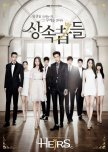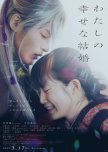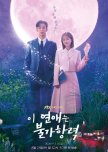
This review may contain spoilers
Cool premise but lost the plot
Around halfway through it becomes clear that the writers have no idea what they want to do with this show, so every two episodes is a useless conflict that creates unnecessary angst before the male lead resolves it with... plot armour? All intrigue built in the first few episodes slowly goes away as the plot becomes more and more ridiculous. All of the characters lose all of their interesting characterizations in favour of a trope-filled plot. And while I love a good trope, this show is all tropes no substance. The stakes don't feel real, and no matter how well the characters act, the writing is too bad for me to buy into the story.Was this review helpful to you?

Good? No. Iconic? Yes.
"The Heirs" is objectively terrible: the relationships are toxic and dysfunctional, the storylines don't make much sense, and the production is not great. However, what makes this show so beloved is its ability to go against your expectations. No other show can compare to the out-of-pocket dialogue, insane characters, and ridiculous plot points that "The Heirs" has to offer. "The Heirs" dares to subvert expectations whenever possible. Within the first episode, Kim Tan's Californian roommate robs Cha Eun Sang, thinking that her bag of rice (?) is cocaine. Right off the bat, it shows you that this is a world not like our own, one where people have no concept of logic or common sense. This is a show that pairs excellently with intoxication.Was this review helpful to you?

This review may contain spoilers
Strong Woman Do Bong Soon is not a Strong Female Protagonist
Strong Woman Do Bong Soon is perfectly enjoyable and is full of iconic characters and dialogue. It's a fun, easy watch that doesn't require much thinking. However, there is one key element of the show that is missing: a clear message.Granted, not every show needs to have a message. However, SWDBS shoves a theme of "girl power" down our throats without really saying anything about it.
Whenever Bong Soon has to fight with men, they always underestimate her because she is a woman. However, the show somewhat argues that their belief that women are weak is a correct one; Bong Soon is the only strong female character, and that is only because she has superpowers. In fact, she consistently talks about how she needs to protect the weak from the strong, mainly focusing on women. The show does everything in its power to differentiate Bong Soon from "other girls" who are "weak".
Another example of failed feminism in the show is the bizarre lack of female characters. There are no female police officers working with Gok Doo (you would think there would be, given they are catching a criminal that exclusively targets women), no female gangsters, and no female executives at Ainsoft. The main cast is almost exclusively men and most of the narratives surround men. The female characters don't usually get much characterization, and most of our descriptors for them are traumatic things that happen to them or their connection to male characters. They serve no purpose other than to advance the narratives of Do Bong Soon or one of the many male main characters.
The one exception to this rule is Bong Soon's mother, but that isn't necessarily a good thing. She is frequently shown hitting her husband and her daughter, which was deeply upsetting and demonstrated an incredibly surface-level understanding of feminism. Bong Soon's mother has reversed gender roles, with her being domineering and assertive, and this is played for laughs. This is concerning for two reasons: 1) behaving like your oppressor isn't empowerment, and 2) it makes abuse seem like not a big deal.
Finally, the main villain is so over the top and ridiculous that it sensationalized sexual violence and made it into an individual issue rather than a societal one. None of the sexist characters learn anything or change their ways after meeting Bong Soon.
Overall, SWDBS had so much potential to make real criticisms about society but instead capitalized on surface-level "girl power" narratives that maintained the status quo. That being said, it's a fun watch and the chemistry and acting are super enjoyable.
Was this review helpful to you?

This review may contain spoilers
interesting premise undercut by misogynistic narrative
I have not interacted with any of the source material, so this is purely based on the film as its own artistic work.This movie was cute and had some fun ideas, but ultimately felt very hollow. I wish women weren't accessories in the film, and the characters had some sort of nuance. Miyo has no discernable traits and is a clear self-insert for the audience. This movie is a poster child for the Madonna-Whore complex, where women are either virginal, naive, and moral or selfish, vapid, and evil. Miyo's entire characterization is based on things that happen to her instead of any sort of internal journey. At the beginning of the film, she has no confidence and is willing to give all of herself to the point of self-harm. At the end of the film, she is slightly more confident (not because of any intrinsic motivation, but because a man loves her) and is still willing to give all of herself to the point of self-harm.
Kiyoka says that looks and gifts don't mean anything to him, but the audience will never know if that is true because Miyo is both beautiful and gifted. I wonder what would happen if, once she healed from her abuse, she began to act more morally grey. Would he still love her if he couldn't project perfect morality onto her? I have no clue why Kiyoka loves Miyo. Not because she doesn't deserve to be loved, but because we, as the audience, know nothing about who she is or her values.
Miyo is by far the most interesting character in the film, yet her character is not explored at all. All we know about her is that her mother died, as we are reminded every five minutes with a "We Bought A Zoo" - level flashback to her perfect, beautiful mother who is entirely moral and could never do wrong. Does she seriously hold 0 resentments for her family? Does Miyo seriously not care about how her partner treats her? Their love story is cute, but seeing as she is deeply traumatized, the fact that Kiyoka keeps their dynamic so ambiguous feels almost cruel. In addition, the fact that Kiyoka is the one who is interested in her gifts instead of her felt ridiculous. Why was she not asking questions about her past? Why did she get 0 say in where she would be living? Kiyoka gets manipulated by her cousin, but also this 100% would not have happened had he just asked her what she wanted and communicated effectively. Kiyoka has 0 incentive to be toxic towards her after she has made it abundantly clear she has no power and no ulterior motives.
What's really sad is the plot of this film can not happen without the subjugation of women. I was somewhat alarmed at the lack of female soldiers and villains (other than the stepmom and sister, who are otherwise useless to the main plot). However, I realized there could never be large amounts of women fighting with men because that would mean that women were treated as equals with any sense of autonomy. Given that the catalyst for this story is Miyo being sold off to marry a stranger, it is clear that women are pressed in this universe. The narrative never says that this is wrong. In fact, Kiyoka is a hero for caring for her even though she has no autonomy in his household. He hurls abuse towards innocent women who are sent to marry him, likely with similar levels of autonomy to Miyo, but it's treated as some quirk of his. I don't think we ever find out why he is so awful to those women. Kiyoka controls how Miyo is introduced to her gifts, and even after realising something is wrong, he doesn't bother to tell her he thinks she has powers. The whole movie is filled with Kiyoka actively participating in patriarchal behaviours, and he is treated as a hero for it.
Overall, the premise is kind of interesting, but the film shoots itself in the foot for bad character writing, particularly regarding its female characters. I wish Miyo drove the plot, instead of being used as a plot device to move Kiyoka. She's literally the main character.
Was this review helpful to you?

This review may contain spoilers
I could not tell you what this is about
I'm sure a lot of us have listened to a k-pop song where there is an English lyric that means absolutely nothing. This string of words does not combine to communicate any idea. An example is the NCT lyric, "Hot dog feel like I wear goose goose." That sentence means absolutely nothing. I have no clue what they are trying to tell me with this line, and I'm left bewildered by the songwriters.Destined with you is if that Super Junior lyric was actually a 16-episode Korean drama. At no point in this show did I understand the trajectory of the story, and it all just felt like things were happening for the sake of them happening. The show introduces us to an urban fantasy setting at first (LOVE), and then we learn that magic is not real (INTERESTING), and then we learn that it actually is real (HUH?), and by the end, we are left unsure whether or not any of the events in the show are magical or not. There were plenty of interesting ideas, but the show felt like it was having an identity crisis, unable to pick a genre and ultimately giving us the worst of both worlds. The love story was ridiculous and all over the place. The villains were nonsensical and never seemed to connect to the main characters. Overall, the plot (if you can even call it that) was a nothing sandwich that wasted all of the amazing set up from the first episode. The actors did a great job with their terrible script, but overall, the show collapsed under its own weight.
Was this review helpful to you?


